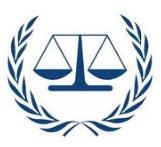 New York,
USA / Manila, The Philippines
—
The
Coalition for the International Criminal Court today called on Indonesia to
consolidate its commitment to international justice by joining the 121 nations
across the globe that have ratified the Rome Statute. Indonesia is the focus of
the Coalition’s Universal Ratification Campaign (URC) for July 2012, a campaign
launched to call upon a different country each month to join the Rome Statute—the International Criminal
Court’s (ICC) founding treaty.
New York,
USA / Manila, The Philippines
—
The
Coalition for the International Criminal Court today called on Indonesia to
consolidate its commitment to international justice by joining the 121 nations
across the globe that have ratified the Rome Statute. Indonesia is the focus of
the Coalition’s Universal Ratification Campaign (URC) for July 2012, a campaign
launched to call upon a different country each month to join the Rome Statute—the International Criminal
Court’s (ICC) founding treaty.
In a letter dated 5 July 2012 to Indonesian President
H.E. Mr. Susilo Bambang Yudhoyono, the
Coalition—a global network of more than 2,500 civil society organizations
in 150 countries advocating for a fair, effective and independent ICC—urged the
Indonesian government to heighten its accession efforts and promptly join the
ICC.
The
Coalition recalled that 1 July 2012 marked the 10th anniversary of the entry
into force of the Statute, and highlighted the achievements of this new system
of international justice during the past decade, despite significant challenges
that have arisen along the way. In addition, while Asia continues to be
under-represented before the ICC, it is encouraging to witness the actions that
are being taken by different countries in the region toward accession, including
Indonesia.
“Ratification of the Rome Statute will provide ample opportunity for
Indonesia to be actively involved in
world peace and global justice, as well as to ensure the protection of human
rights for all its citizens. By joining the system established by the Rome
Statute, Indonesia will also have equal
standing with other nations that have ratified this international instrument,”
stated
Mugiyanto, convenor of the Indonesian
Coalition for the ICC.
Following Indonesia’s recent review during the 13th
session of the Human Rights Council’s Universal Periodic Review, the Coalition
praised the country’s acceptance of the 12 recommendations that it received
regarding its accession to the Rome Statute, and called on government officials
to maximize this opportunity and meet the target set in Indonesia’s 2011-2014
National Human Rights Plan of Action regarding accession.
“Indonesia’s membership to the ICC is
consistent with its declaration of strong commitment to human rights and
the rule of law. The people, especially the victims of serious crimes, stand to
benefit from the standards set by the Rome Statute in international law and
justice. Indonesia’s challenge of ending
impunity in the country and
preventing serious crimes from happening again resonate very well with ICC’s
goals” said Evelyn Serrano, the
Coalition’s regional coordinator for Asia-Pacific.
One hundred and twenty-one states have ratified or acceded to the
Rome Statute, Guatemala being the most recent. To
date, 17 states in Asia and the Pacific have
joined the Court.
Background:
The
ICC is the world's first permanent international court to prosecute war crimes,
crimes against humanity, and genocide. Central to the Court's mandate is the
principle of complementarity, which holds that the Court will only intervene if
national legal systems are unwilling or unable to investigate and prosecute
perpetrators of genocide, crimes against humanity and war crimes. There are
currently seven investigations before the Court: the Central African Republic;
Cote d’Ivoire; the Democratic Republic of the Congo; Darfur, the Sudan; Uganda;
Kenya; and Libya. The ICC has publicly issued 20 arrest warrants and nine
summonses to appear. The Court issued a judgment in its first trial on 14 March
2012. Two other trials are ongoing. The ICC’s Office of the Prosecutor has also
made public that it is conducting seven preliminary examinations on four
continents: Afghanistan,
Colombia, Georgia, Guinea, Honduras, Republic of Korea and Nigeria.
The
Coalition for the International Criminal Court is a global network of civil
society organizations in 150 countries working in partnership to strengthen
international cooperation with the ICC; ensure that the Court is fair, effective
and independent; make justice both visible and universal; and advance stronger
national laws that deliver justice to victims of war crimes, crimes against
humanity and genocide. For more information, visit:
www.coalitionfortheicc.org
.
